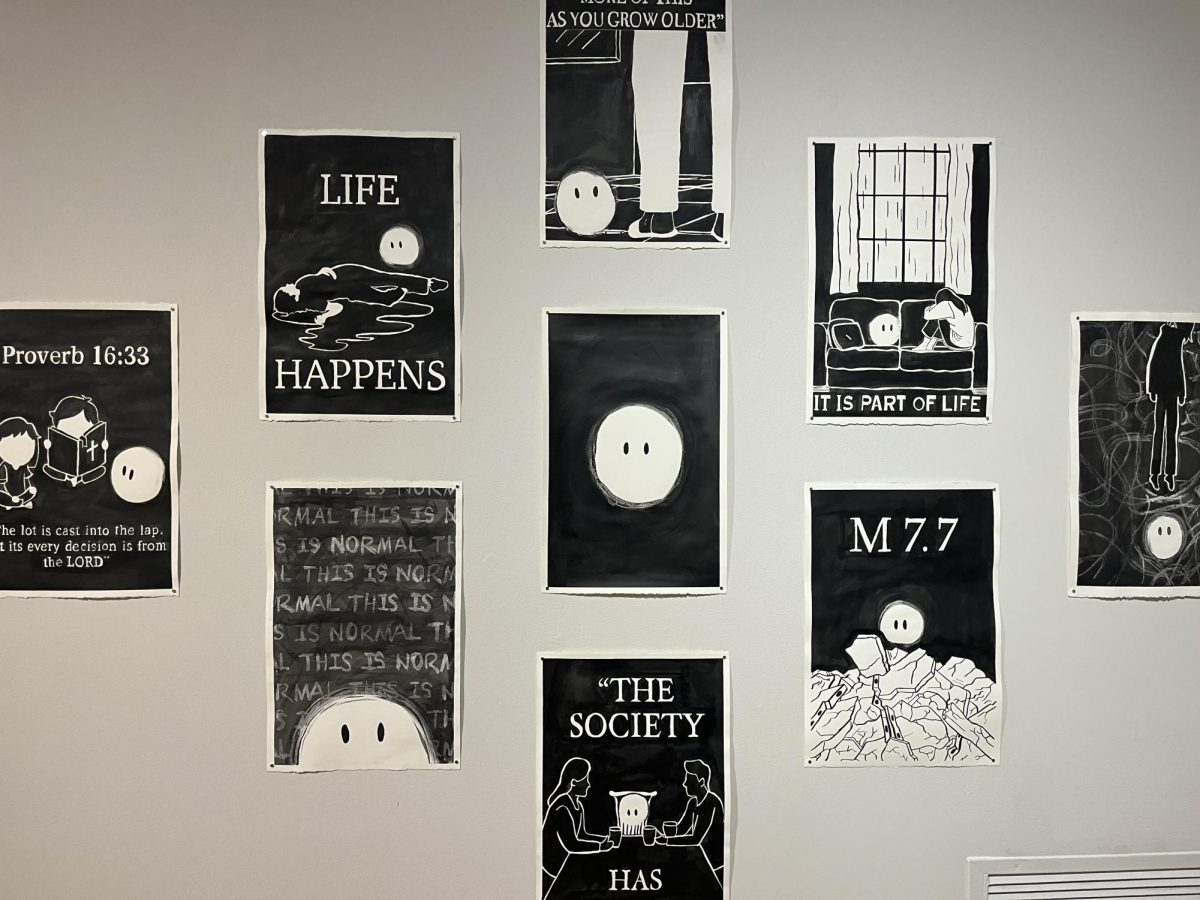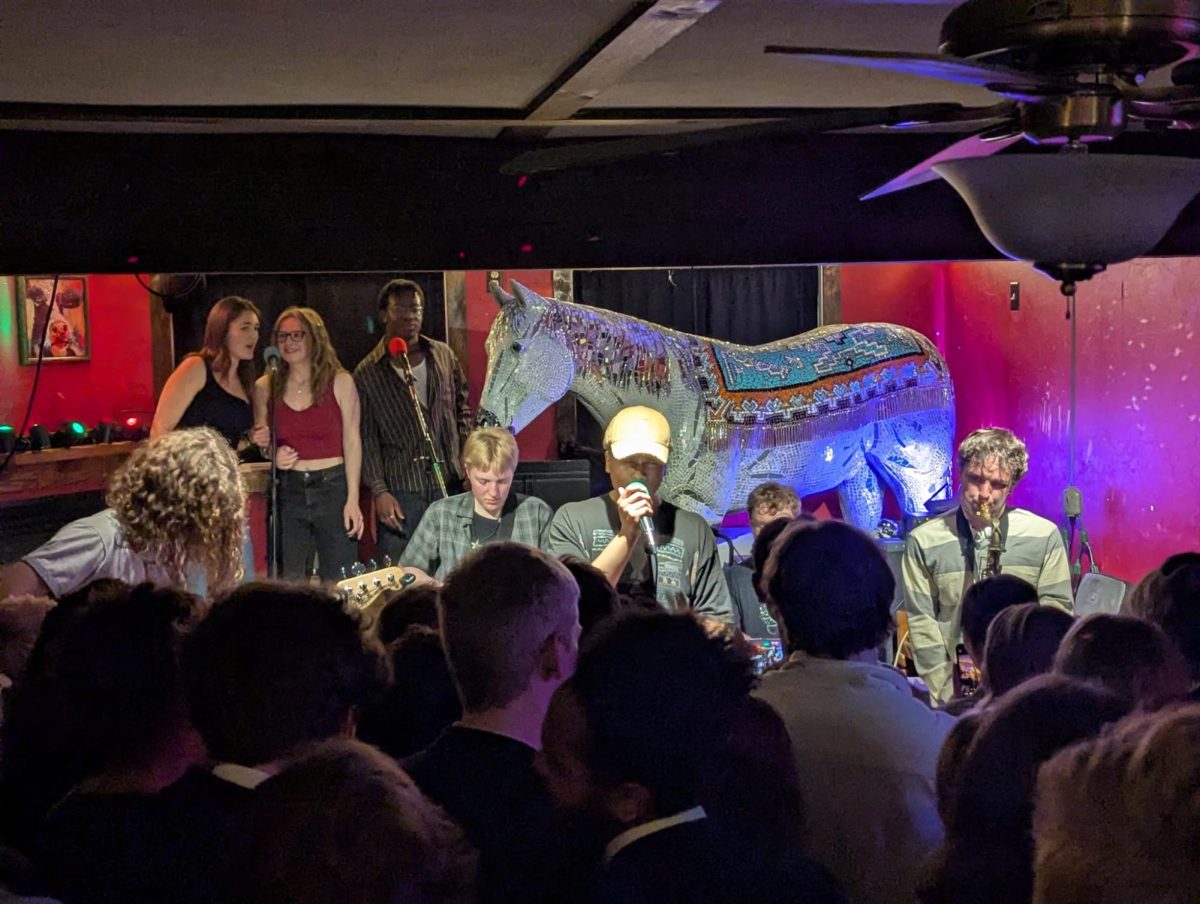Writer Emily Rapp ’96 returned to the Hill on Monday, April 20 to speak and read a selection of her work to a room packed with eager students and faculty. After graduating from St. Olaf, Rapp worked abroad in Korea, Switzerland and Thailand before entering Harvard Divinity School. She then went on to receive her M.F.A in Creative Writing from the University of Texas at Austin. Rapp is currently a professor of creative writing and literature at the Santa Fe University of Art & Design.
Professor of English Diana Postlethwaite introduced Rapp, describing some of her St. Olaf connections as well as some of her achievements – including completing the Great Conversation program, studying abroad in Ireland, working in North Korea as a Fulbright Scholar, publishing two memoirs and a multitude of articles and essays and, currently, raising her 13-month old daughter.
“Her most formative journeys are not to Dublin, Manitou Heights or Korea, but to places none of us have ever probably been. . . places we might prefer not to go.” Postlethwaite said.
Indeed, Rapp faced many challenges, but she used her experiences to learn and grow into the talented writer and woman she is today. Rapp radiated humility, liveliness and good humor. In fact, Rapp struggled for a minute to work the clip-on microphone, before ditching it and wondering aloud why on earth Popular Mechanics was allowing her to write an article for the magazine. The audience laughed, and the atmosphere of the room immediately felt relaxed and inclusive of all in attendance.
Rapp’s career focused mainly on personal narrative. Her first memoir, Poster Child, described being born with a congenital defect that caused her to have one leg amputated, and living with the effects of that; she attributes much of her humor to growing up like she did.
“It’s a coming of age story,” Rapp said.
Her second memoir, Still Point of the Turning World, relays the heartbreaking account of her son, Ronan, being born with Tay-Sachs disease. The New York Times described it as “a brilliant study in the wages of mortal love.”
Rapp chose to read from her newest piece, a short essay collection called Cartography for Mourners. She first described how she was always getting lost and hated maps, which inspired her to use them to tie together some of her personal experiences.
“I even got lost in Northfield today,” Rapp said.
“Cartography for Mourners” was an honest, if not cynical, piece that included many poignant personal memories, including being told things like “It sure is a good thing you’re smart,” and “you’re made wrong,” regarding her amputated leg. Some of the stories centered around losing her son, Ronan, to Tay Sach’s disease, others around her grandmother’s funeral or her travels abroad. All the short essays conveyed a sense of being lost; listeners followed along her turbulent journey, sometimes feeling disoriented themselves. Rapp ended by saying, “I’m happy I don’t have a map.”
In the question and answer session that followed her reading, Rapp described lessons from her personal and professional life, which applied both to the students and the faculty members in attendance. When asked if she recommended an English major for aspiring writers, Rapp said, “It’s not worth it to get a degree in something when you’re not passionate about it.”
Rapp herself was a religion and women’s studies major at St. Olaf, but has always expressed herself using writing.
“We all have those childhood experiences – those stories from our past to call on,” Rapp said. Writing is an obvious career choice for Rapp, and she was incredibly humble in describing what she does.
“Anyone can write a memoir,” she said. “It’s basically like a novel. It’s writing about how a person changes.”
However, the difficult reality of the writing and publishing process did not go overlooked by Rapp. She described rewriting the same section of her first memoir 55 times until her editor accepted it. Rapp also described the joys of her job.
“The best part of being a writer is the community,” she said. “I just really like my people. It’s kind of like college, only spread out.”
The memoir genre includes works from a diverse range of writers and people, as Rapp described. The recent “memoir boom” has inspired an increase in life narratives focused around contemporary cultural issues. These topics can include anything from addiction to disability to celebrity to sexuality. Unlike autobiographies, memoirs center around specific themes or aspects of the author’s life.
Despite overwhelming responses to her writing, Rapp refuses to read any reviews of her work. She said she sometimes gets nasty letters or hears about glowing reviews of her books, but she ignores both. Rapp said that choosing not to care was the best decision she ever made, and she recommended to aspiring writers to consider doing the same.
Rapp provided some final advice for students sitting where she sat 20 years ago. Rapp’s comments demonstrated the fierce individuality and independence that she has developed over her life and career.
“You don’t have to go to every party,” she said. “Do your own thing.”



